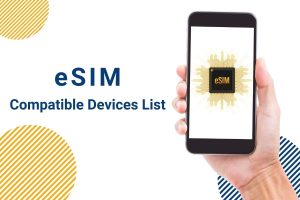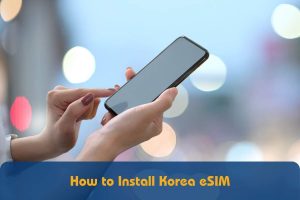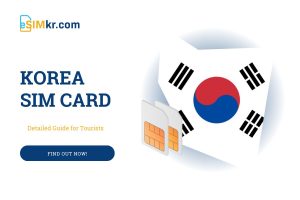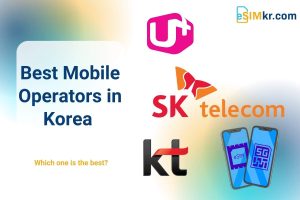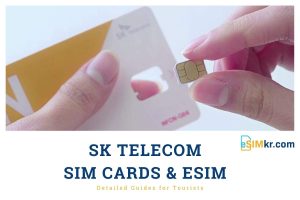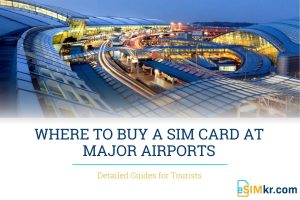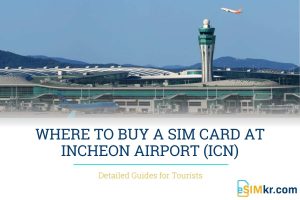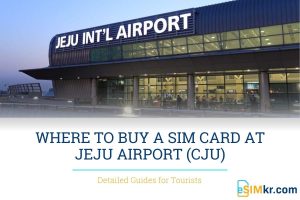Roaming in South Korea can be a costly affair if you’re not prepared. This comprehensive guide will help you understand data roaming charges, explore various options to avoid them, and ensure a seamless connectivity experience during your travels.
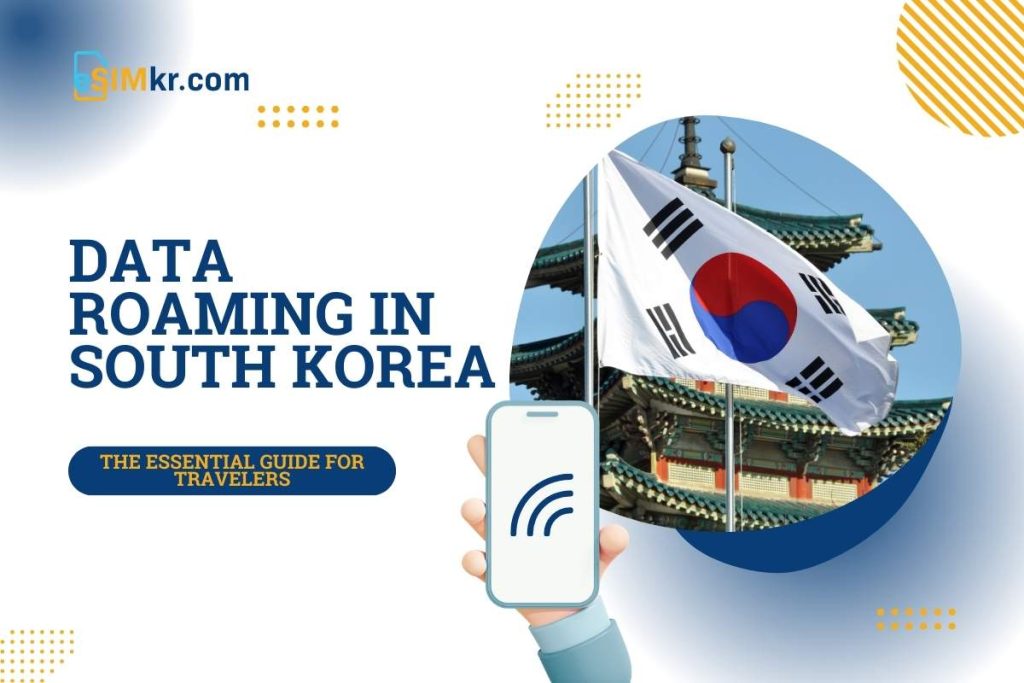
Table of Contents
I. Understand Data Roaming in South Korea
What are Roaming Charges?
When you use your mobile device outside of your home network’s coverage area, you’re “roaming” on a different network. Roaming charges are the fees your service provider charges you for using voice, text, and data services while roaming. In South Korea, these charges can quickly add up if you’re not careful, resulting in an unexpectedly high phone bill upon your return.

Some key things to know about roaming charges if using your phone in South Korea:
- South Korean law prohibits carriers from charging home subscribers roaming fees for voice calls made in South Korea. However, data roaming charges still apply.
- Most major South Korean carriers like SK Telecom, KT, and LG UPlus have prepaid roaming pass packages for travelers that provide a certain amount of voice minutes, texts and data at a fixed rate. These can save money versus paying per use.
- Data roaming rates are high if purchased separately without a pass. Daily data caps start at around $10-15 per day for 500MB of usage. It’s easy to exceed daily limits.
II. Roaming Charges in South Korea
1. How to Check Roaming Charges Before Your Travel To South Korea
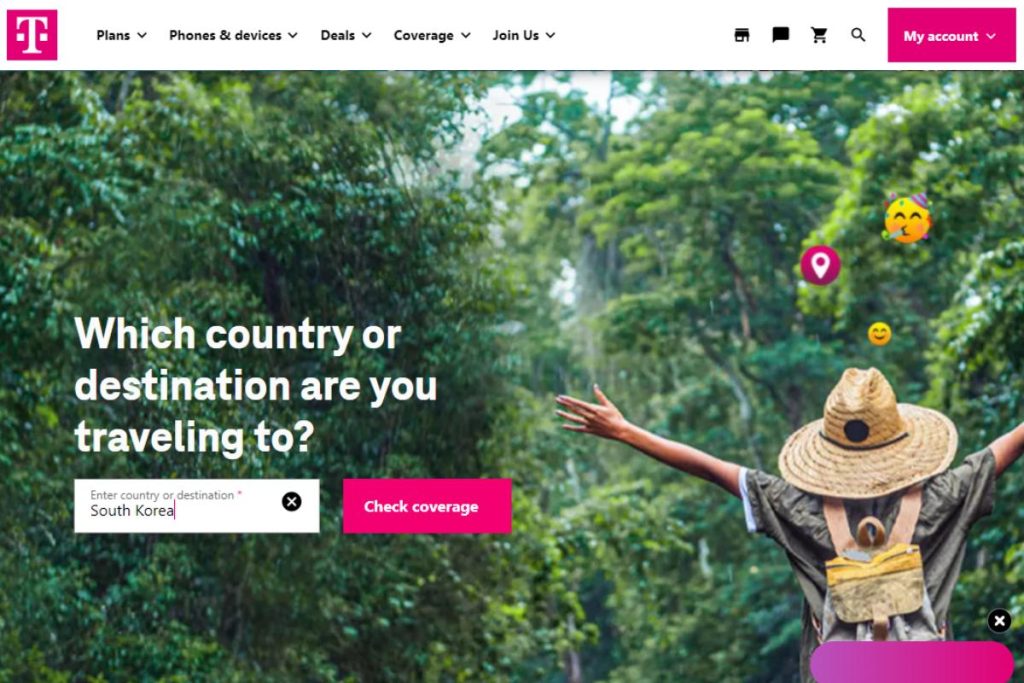
Contact your Mobile Provider
Before leaving for South Korea, contact your mobile service provider and inquire about their roaming charges in the country. They should be able to provide you with detailed information on voice, text, and data rates while roaming in South Korea.
Research Applicable Roaming Fees
Many mobile providers have dedicated websites or sections that outline their roaming fees for different countries. Take the time to research these fees for South Korea, as they can vary depending on your plan and the provider.
Call Customer Service
If you’re unable to find the information you need online or have specific questions, don’t hesitate to call your provider’s customer service. They should be able to provide you with clear and accurate information about roaming charges in South Korea.
2. Roaming Charges in South Korea by US Mobile Operators
Here’s a comparison of roaming charges for some major US mobile operators in South Korea:
| Provider | Talk | Text | Data |
|---|---|---|---|
| AT&T | $3/minute | $0.50/message to send, $1.30/message for pictures and videos | $2.05/MB |
| T-Mobile | $0.25/minute | Unlimited | Unlimited at up to 256kbps |
| Verizon | TravelPass: $10/day for unlimited talk | TravelPass: $10/day for unlimited text | TravelPass: $10/day for unlimited data |
As you can see, roaming charges can quickly add up, especially for data usage. T-Mobile seems to offer the best value for basic talk and text, but it’s still advisable to explore alternatives to avoid unexpected charges.
III. Best Ways to Avoid Roaming Charges in South Korea
1. Buy an eSIM from esimkr.com
An eSIM (embedded SIM) is a digital SIM card that allows you to activate a local mobile data plan without the need for a physical SIM card. esimkr.com is a popular platform that offers eSIM plans for South Korea, catering specifically to travelers.
Advantages of Using an eSIM
- Convenience: No need to visit a physical store or wait in lines to get a SIM card.
- Instant Activation: Once purchased, the eSIM can be activated instantly on your compatible device.
- Data-only Plans: eSIMs typically offer data-only plans, which are perfect for travelers who primarily need internet access.
- No Commitment: You can purchase a plan for the duration of your stay and cancel it when you leave South Korea.
How to Use an eSIM from esimkr.com
- Check if your device is eSIM-compatible.
- Visit esimkr.com and select the appropriate data plan for your needs.
- Complete the purchase process and follow the instructions to activate the eSIM on your device.
- Once activated, you’ll have access to a local data plan without incurring roaming charges.
Plans that may interest you
Skip the Roaming Surprise - Get Connected with esimkr.com
2. Buy a Local SIM Card
Another popular option to avoid roaming charges is to purchase a local SIM card upon arrival in South Korea. This allows you to use a local mobile network and take advantage of affordable data plans.
Advantages of Using a Local SIM Card
- Cost-effective: Local SIM cards often offer much lower rates for data, voice, and text compared to roaming charges.
- Unlimited Data Plans: Many local providers offer unlimited data plans at reasonable prices, perfect for data-hungry travelers.
- Reliable Connectivity: Local networks typically provide better coverage and faster data speeds compared to roaming on a foreign network.
Are you traveling to South Korea soon? Don't miss out on important communications or getting directions on the go. Click here to learn about prepaid SIM options and choose the right plan for you.
3. Enable Wifi Calling
If you plan to use your existing mobile number while in South Korea, enabling WiFi calling can be a cost-effective solution. This feature allows you to make and receive calls over a WiFi network, avoiding roaming charges for voice calls.
How to Enable WiFi Calling
- Check if your mobile provider supports WiFi calling and if your device is compatible.
- Enable the WiFi calling feature in your device’s settings.
- Connect to a reliable WiFi network in South Korea.
While WiFi calling can save you from voice roaming charges, you may still incur data roaming charges if you don’t have a local data plan or an alternative like an eSIM.
IV. FAQs about Roaming in South Korea
Can I use my home SIM card in South Korea?
You can use your home SIM card for data roaming in South Korea. However, data costs tend to be very expensive on roaming. A more cost effective option is to purchase a local prepaid SIM card.
Where can I buy a local prepaid SIM card?
The major networks like SK Telecom and KT sell prepaid SIM cards at kiosks located in major airports. You can also buy SIMs from convenience stores like 7-Eleven. Some MVNOs sell online with delivery options.
Do I need to register my passport for a prepaid SIM?
In the past, prepaid SIM registration requiring your passport details could take 3 days to activate. Now, most major networks offer instant activation without registration on arrival. However, eSIM plans like from esimkr.com don’t require any registration.
Can I use my prepaid SIM card for calls and messages?
Most prepaid plans offer data-only. For voice and SMS, look for plans marketed for tourists which provide a Korean phone number. However, note that due regulations, these numbers cannot be used for identity verification.
Can I use my mobile data plan from my home country while in South Korea?
You can, but you’ll be subject to roaming charges, which can be expensive for data usage. It’s generally more cost-effective to explore alternatives like eSIMs or local SIM cards specifically for your trip to South Korea.
V. Conclusion
Roaming in South Korea can be a hassle and a financial burden if you’re not prepared. By understanding roaming charges, exploring alternatives like eSIMs and local SIM cards, and enabling features like WiFi calling, you can stay connected without breaking the bank.
Remember, preparation is key. Research your options, compare costs, and make informed decisions before your trip to ensure a seamless and cost-effective connectivity experience in South Korea. Happy travels!


